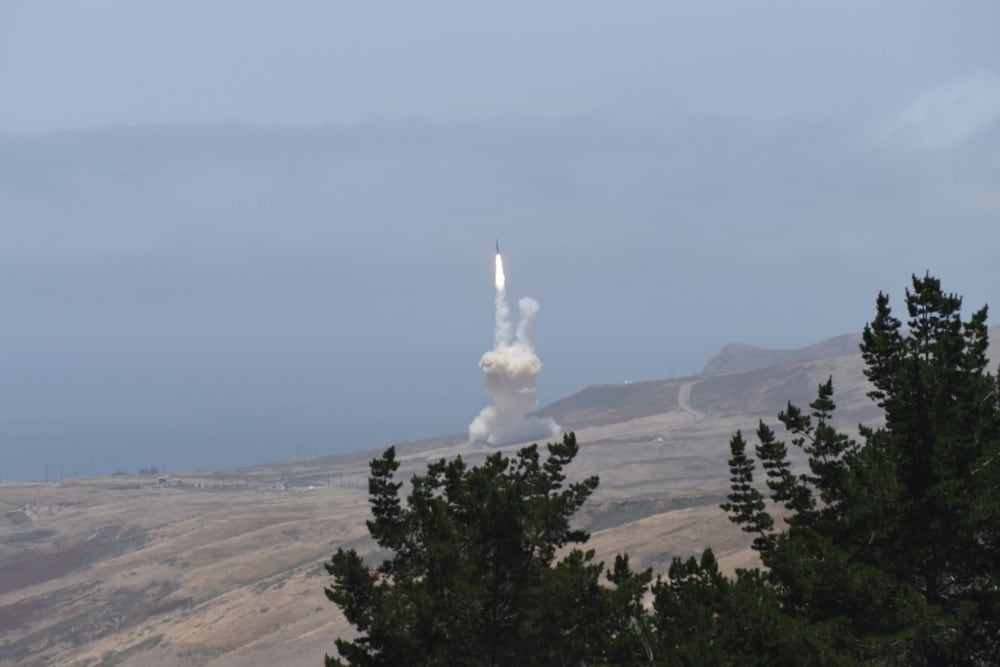WASHINGTON — The fight to build America’s next missile interceptor has officially begun.
The Missile Defense Agency on Friday released its request for proposal for its Next-Generation Interceptor (NGI). The RFP aims to downselect to two companies who will then compete for the right to build the interceptor, which will form the core of America’s homeland missile defense going forward.
Proposals are due July 31, but the MDA notes that there may be some give in that schedule due to the ongoing COVID-19 coronavirus pandemic.
The agency requested $664.1 million in fiscal year 2021 for the NGI program, as part of a $4.9 billion five-year budget plan.
Mark Wright, a spokesman for MDA, called the RFP “a vital step forward in designing, developing, and fielding the finest capabilities of both the DoD and American industry for the extraordinarily important purpose of defending the American homeland.”
RELATED

“Notably, the intention of awarding two contracts for simultaneous development of the NGI effort promotes a healthy competition between the two contractor teams to produce the best NGI possible in the shortest time feasible,” Wright added.
In August, the Pentagon made the surprise decision to cancel the Redesigned Kill Vehicle program, with DoD research and engineering head Mike Griffin saying he didn’t want to keep throwing money at a program with fundamental technical issues.
RKV would have upgraded the U.S. homeland defense system’s interceptors designed to go after ballistic missile defense threats. The Pentagon decided that no more ground-based interceptors for the Ground-based Midcourse Defense System (GMD) would be built and all future interceptors that are fielded as part of the GMD system will be the new interceptor – that is, the NGI program.
Critics of the decision to cancel RKV and start over with a new design have raised concerns over the timeline, which could extend past 2030. But speaking in March, MDA head Vice Adm. Jon Hill said that waiting that long for the new capability is “unacceptable from a war fighter view” and “unacceptable to me as a program manager.”
Hill said once bids are on the table, the agency will be able to take a harder look at schedule and once an award has been made, it will hold industry accountable to meet “all the wickets.” If that happens, the schedule can be pulled to the left.
Jen Judson in Washington contributed to this report.
Aaron Mehta was deputy editor and senior Pentagon correspondent for Defense News, covering policy, strategy and acquisition at the highest levels of the Defense Department and its international partners.







